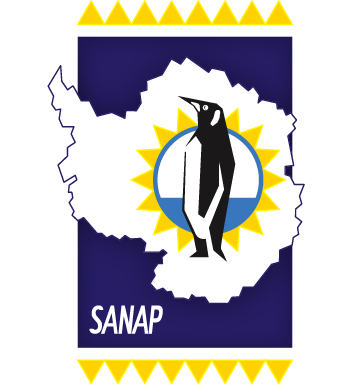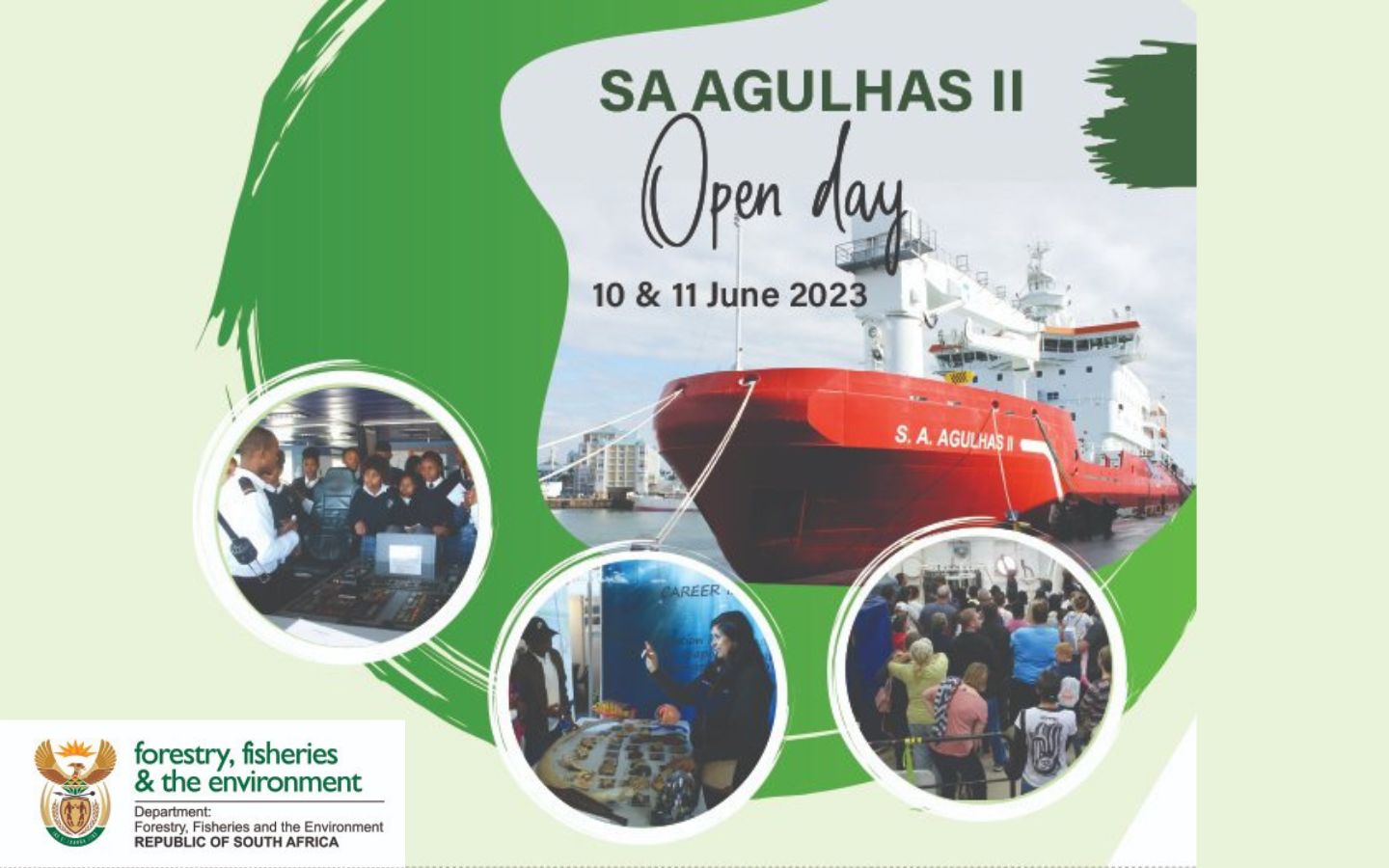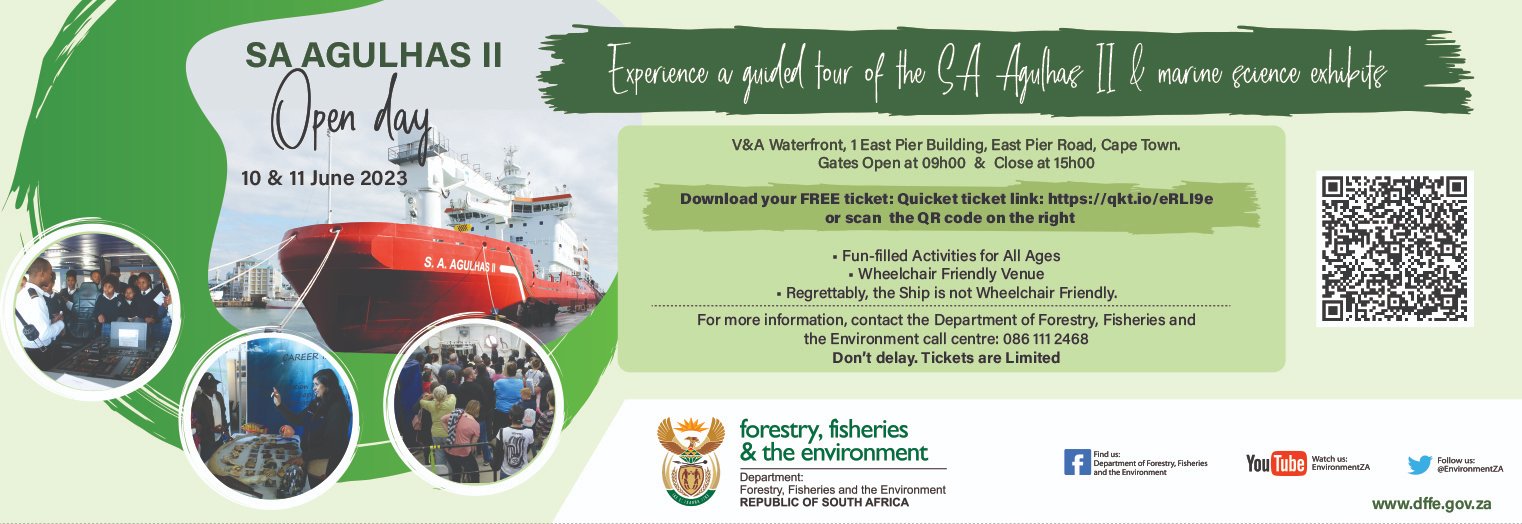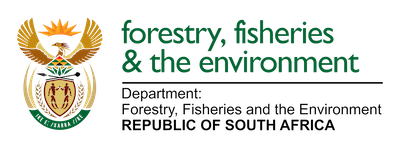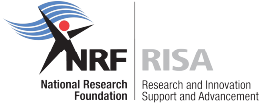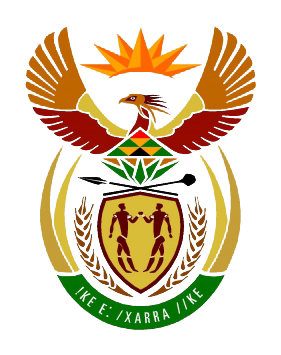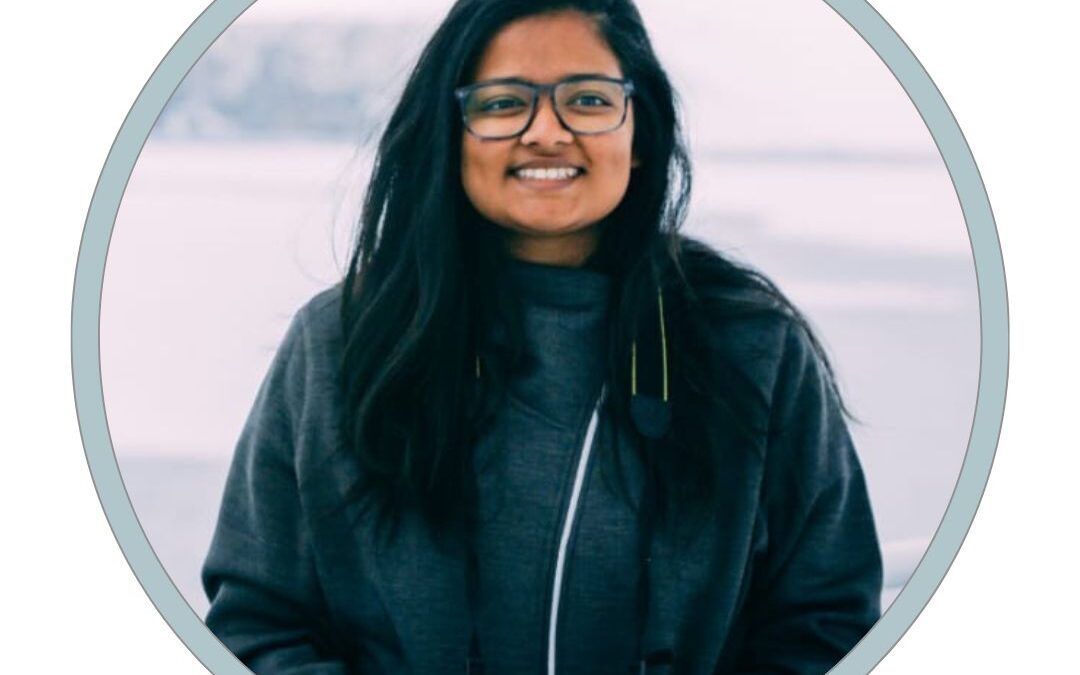
by Ria Olivier | Jun 7, 2023 | Announcement, Antarctica, News, Research, SA Polar Research Infrastructure, SAPolarRI, SAPRI, Science, Southern Ocean
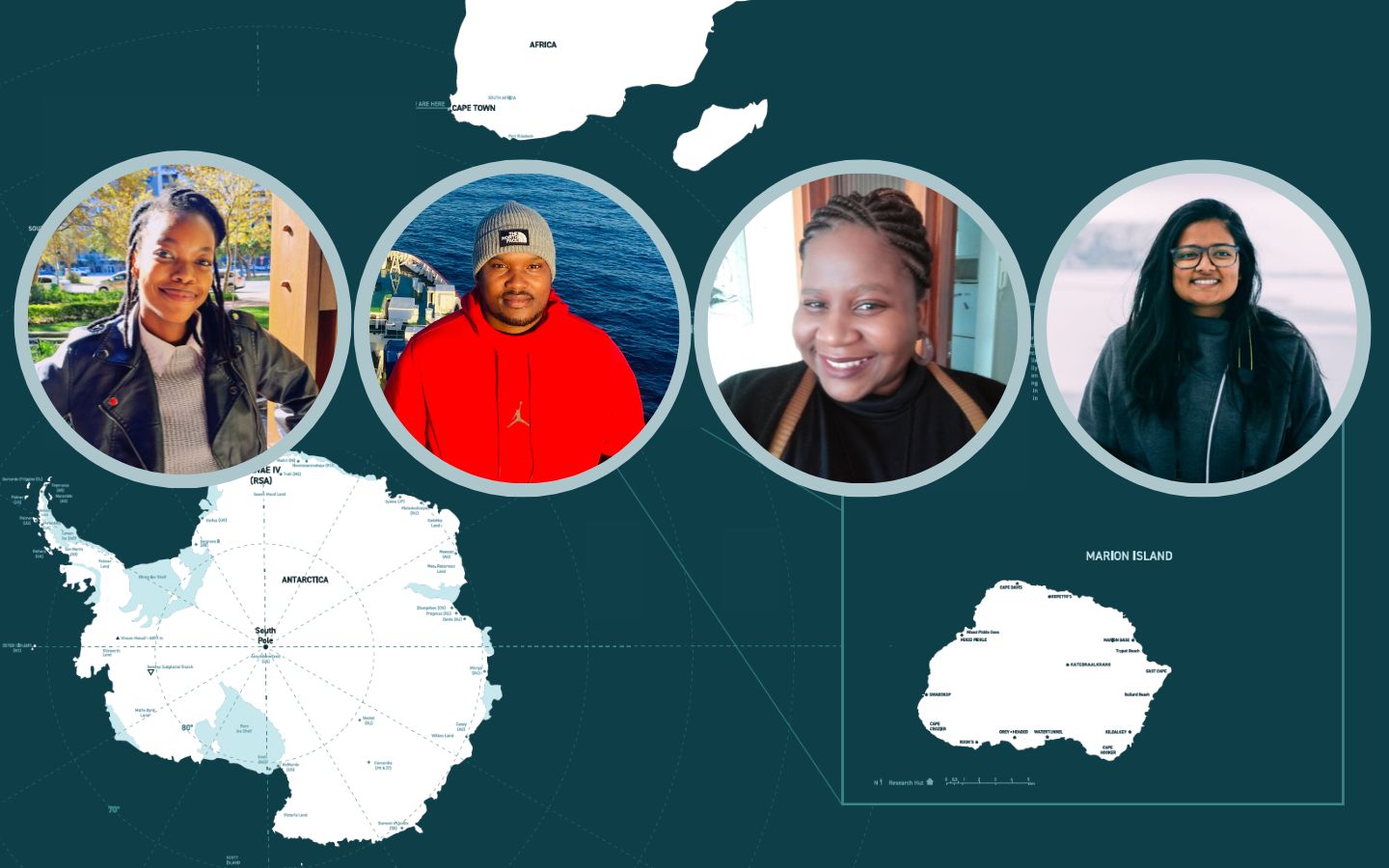
The South African Environmental Observation Network (SAEON) has employed four research coordinators under the South African Polar Research Infrastructure (SAPRI), for each of its four integrated facilities i.e. Data, Products and Society (DPS), Terrestrial Long-Term Observations (LTO-Land), Ocean Long-Term Observations (LTO-Ocean) and Polar Lab. They will mainly be based at the SAEON Egagasini Node, in Cape Town.
Meet the SAPRI Research Coordinators
Rabia Mathakutha
Research Coordinator: Data, Products and Society (DPS)
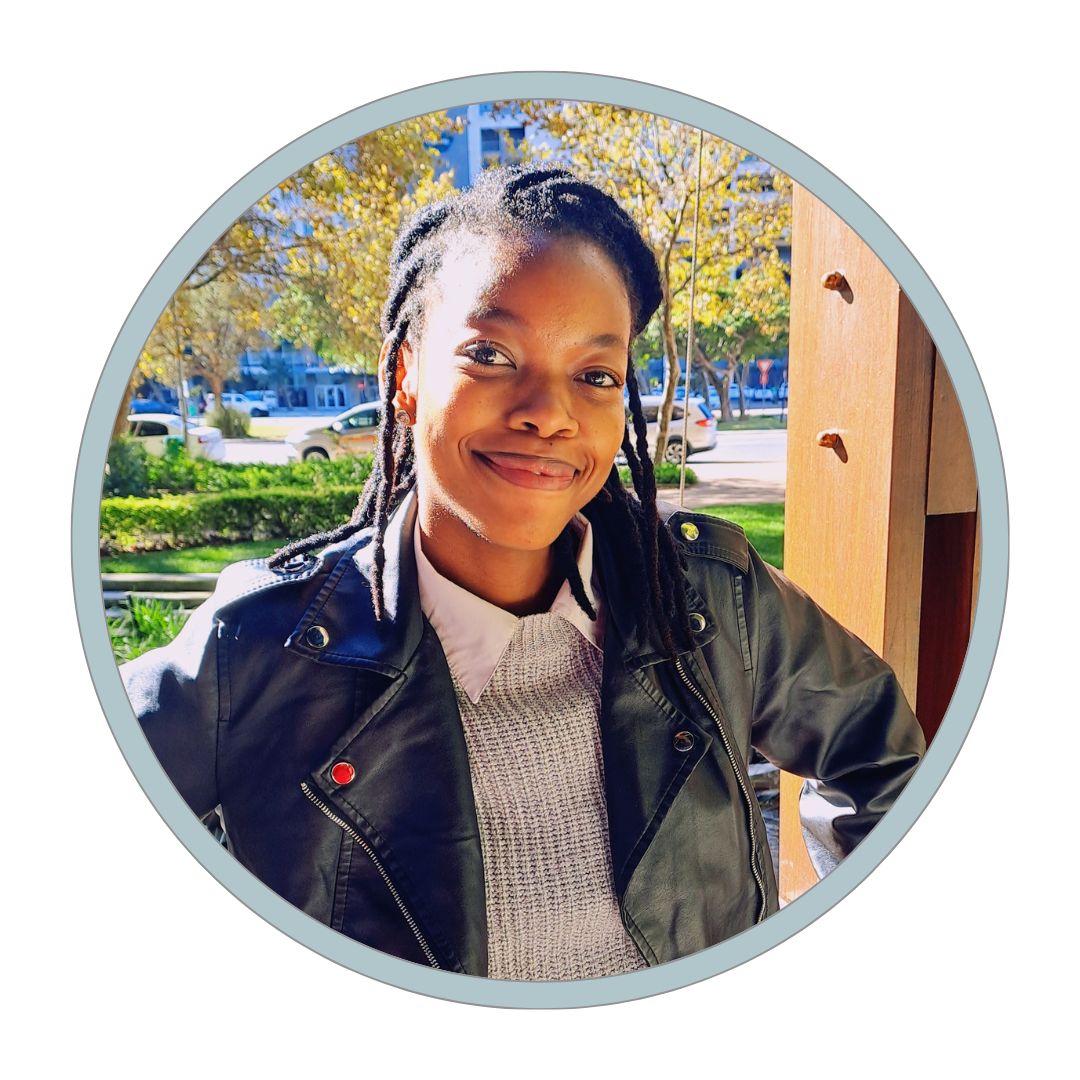 Rabia is a registered Natural Scientist with the South African Council for Natural Scientific Professions (SACNASP) in the field of Environmental Sciences. Rabia holds a Masters degree in Plant Science with a focus on understanding plant invasion potential and climate change responses in the sub-Antarctic region. Rabia has experience in the environmental consulting industry, having worked as a freshwater ecologist and advising clients in terms of relevant environmental legislation and policies as part of the Environmental Impact Assessment (EIA) process. This has given her a range of capabilities that suit her new role as Research Coordinator for the Data, Products and Society Integrated Facility. Her knowledge and background in sub-Antarctic and polar research places her well within the focus of SAPRI. Her work experience in the private sector has equipped her with leadership and stakeholder engagement skills and experience that are valuable as a research coordinator, and brings a fresh outlook to how science (and research infrastructure) is accessed, communicated and how data is managed – key functions of DPS.
Rabia is a registered Natural Scientist with the South African Council for Natural Scientific Professions (SACNASP) in the field of Environmental Sciences. Rabia holds a Masters degree in Plant Science with a focus on understanding plant invasion potential and climate change responses in the sub-Antarctic region. Rabia has experience in the environmental consulting industry, having worked as a freshwater ecologist and advising clients in terms of relevant environmental legislation and policies as part of the Environmental Impact Assessment (EIA) process. This has given her a range of capabilities that suit her new role as Research Coordinator for the Data, Products and Society Integrated Facility. Her knowledge and background in sub-Antarctic and polar research places her well within the focus of SAPRI. Her work experience in the private sector has equipped her with leadership and stakeholder engagement skills and experience that are valuable as a research coordinator, and brings a fresh outlook to how science (and research infrastructure) is accessed, communicated and how data is managed – key functions of DPS.
Abuyiselwe Athandile Nguna
Research Coordinator: Terrestrial Long-Term Observations (LTO-Land)
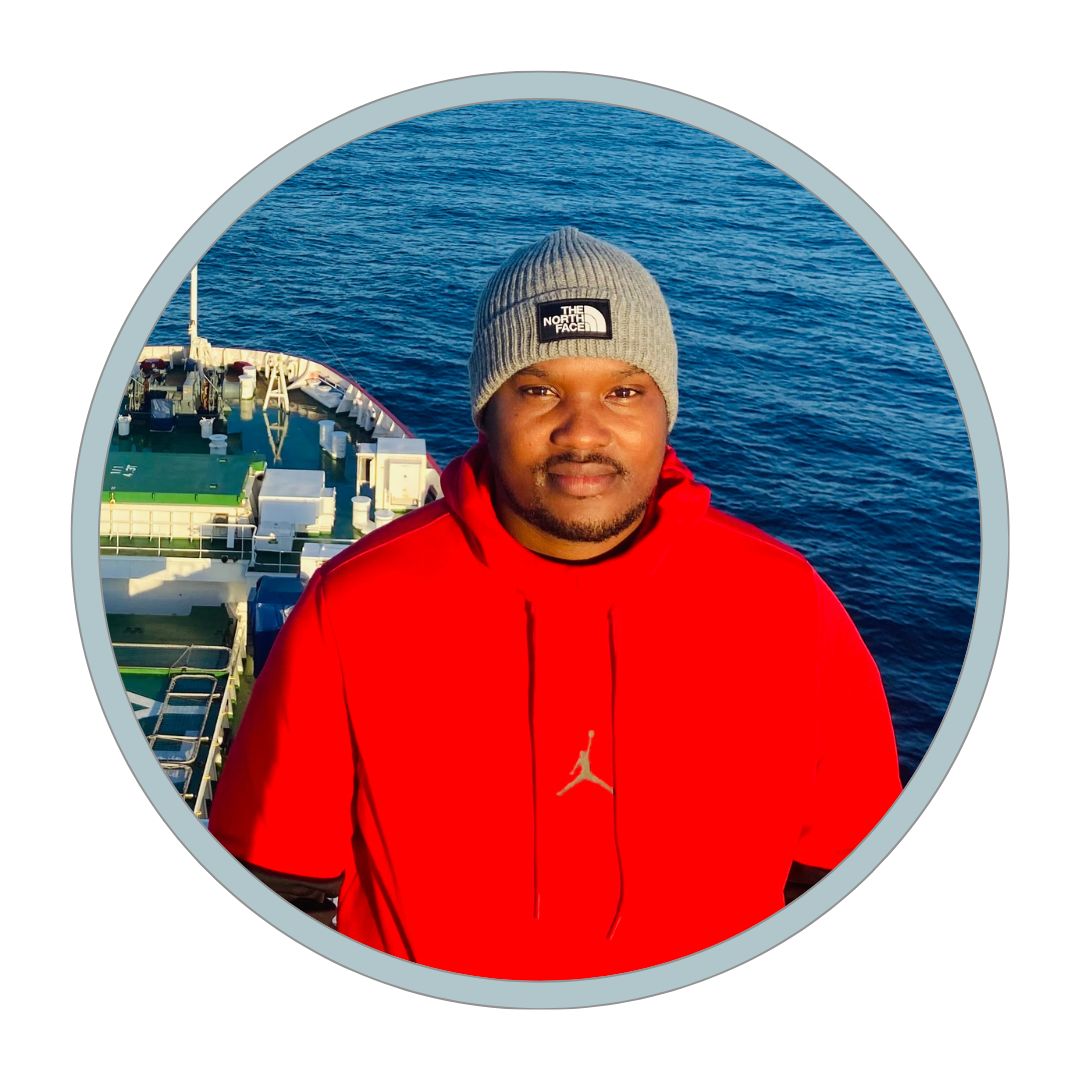 Abuyiselwe, friendly known as Abu, hails from the small town of Komani in the Eastern Cape. His passion in science led him to pursue postgraduate studies. Abu has been focused on periglacial aeolian process research for almost a decade now as he pursues his Ph.D. in Geography. Abu has been part of two overwintering teams on the sub-Antarctic Marion Island, which has given him a vast experience in sub-Antarctic and polar research. Abu is excited to take on his new role within SAPRI and SAEON, where he can continue to build his career and play a part in South African polar research reaching its potential and expanding to the rest of Africa. His work within the Sub-Antarctic Landscape and Climate interactions (SALCi) group has equipped Abu with skills in leadership, data management, proposal writing and efficiency, and of course the love for the sub- Antarctic and the Southern Ocean.
Abuyiselwe, friendly known as Abu, hails from the small town of Komani in the Eastern Cape. His passion in science led him to pursue postgraduate studies. Abu has been focused on periglacial aeolian process research for almost a decade now as he pursues his Ph.D. in Geography. Abu has been part of two overwintering teams on the sub-Antarctic Marion Island, which has given him a vast experience in sub-Antarctic and polar research. Abu is excited to take on his new role within SAPRI and SAEON, where he can continue to build his career and play a part in South African polar research reaching its potential and expanding to the rest of Africa. His work within the Sub-Antarctic Landscape and Climate interactions (SALCi) group has equipped Abu with skills in leadership, data management, proposal writing and efficiency, and of course the love for the sub- Antarctic and the Southern Ocean.
Precious Mahlalela
Research Coordinator: Ocean Long-Term Observations (LTO-Ocean)
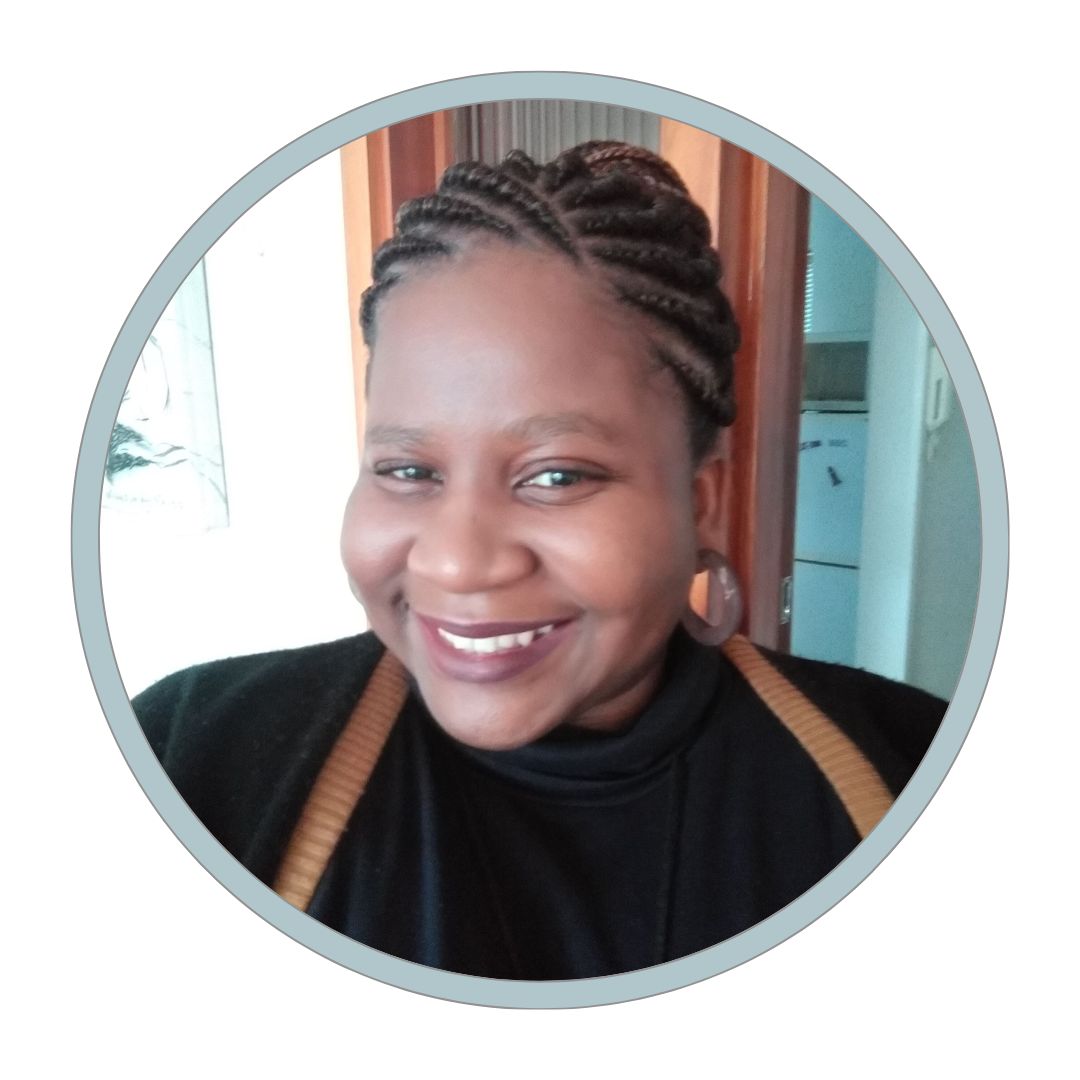 Precious holds a Ph.D. in Ocean and Atmospheric Science with a focus on climate variability. Precious brings a remarkable depth of knowledge and expertise to the team. She has a strong academic background in physical oceanography, atmospheric science, and environmental science. This interdisciplinary training enables her to explore the intricate interplay between the ocean and the atmosphere, shedding light on the dynamic processes that shape our global climate. As a Research Coordinator, Precious assumes a pivotal role in supporting SAPRI’s long-term ocean initiatives. She actively contributes to the development and maintenance of data infrastructure, ensuring smooth research processes for the integrated facility stakeholders. Her meticulous attention to detail and analytical skills contribute to the collection and analysis of valuable data that will help the polar research community better understand our oceans. Outside of her research pursuits, Precious enjoys engaging in community outreach programs and sharing her knowledge and passion for the environment with others. Through these efforts, she strives to inspire the next generation of scientists and foster a sense of environmental stewardship.
Precious holds a Ph.D. in Ocean and Atmospheric Science with a focus on climate variability. Precious brings a remarkable depth of knowledge and expertise to the team. She has a strong academic background in physical oceanography, atmospheric science, and environmental science. This interdisciplinary training enables her to explore the intricate interplay between the ocean and the atmosphere, shedding light on the dynamic processes that shape our global climate. As a Research Coordinator, Precious assumes a pivotal role in supporting SAPRI’s long-term ocean initiatives. She actively contributes to the development and maintenance of data infrastructure, ensuring smooth research processes for the integrated facility stakeholders. Her meticulous attention to detail and analytical skills contribute to the collection and analysis of valuable data that will help the polar research community better understand our oceans. Outside of her research pursuits, Precious enjoys engaging in community outreach programs and sharing her knowledge and passion for the environment with others. Through these efforts, she strives to inspire the next generation of scientists and foster a sense of environmental stewardship.
Riesna R. Audh
Research Coordinator: Polar Lab
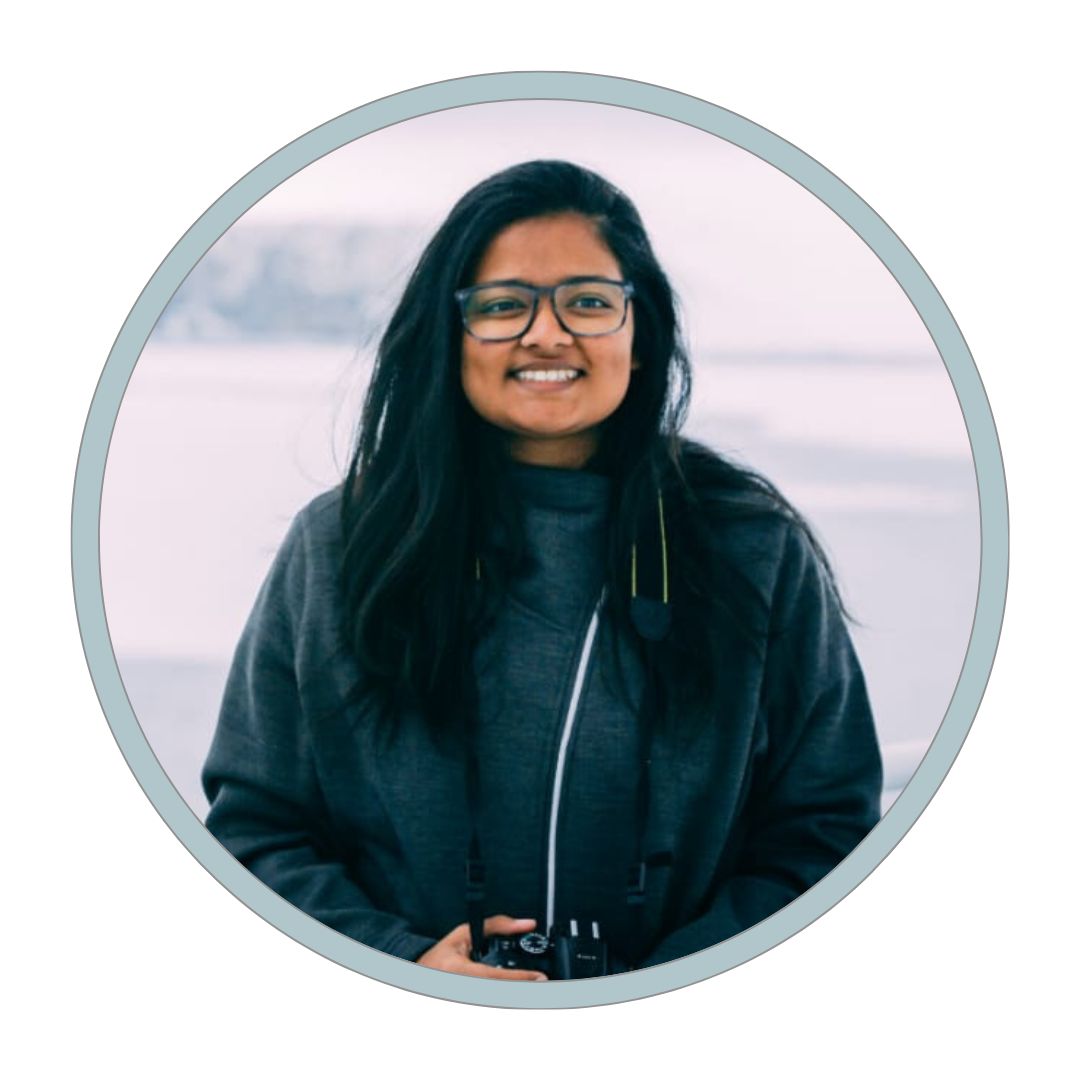 Riesna is the Research Coordinator for the SAPRI Polar Lab. She has a background in polar oceanography and a passion for all things Antarctica. She has helped to develop the field protocols employed by South African researchers on sea ice research and contributed to the knowledge and available data of the polar regions through her Ph.D. research on the biogeochemistry of sea ice in the Antarctic marginal ice zone (MIZ). Riesna believes that science should be accessible and inclusive and intends to use her position to showcase polar research amongst researchers and non-researchers alike. She is a firm believer that collaboration across institutions and disciplines is crucial for the future of polar research and that accessibility, inclusivity and visibility are vital in order to grow this field and encourage the next generation of polar researchers.
Riesna is the Research Coordinator for the SAPRI Polar Lab. She has a background in polar oceanography and a passion for all things Antarctica. She has helped to develop the field protocols employed by South African researchers on sea ice research and contributed to the knowledge and available data of the polar regions through her Ph.D. research on the biogeochemistry of sea ice in the Antarctic marginal ice zone (MIZ). Riesna believes that science should be accessible and inclusive and intends to use her position to showcase polar research amongst researchers and non-researchers alike. She is a firm believer that collaboration across institutions and disciplines is crucial for the future of polar research and that accessibility, inclusivity and visibility are vital in order to grow this field and encourage the next generation of polar researchers.
Read more about SAPRI – click on the link below!
Text supplied by SAPRI Research Coordinators.
Anche Louw, South African Polar Research Infrastructure (SAPRI DPS Node), 07 June 2023

by Ria Olivier | May 25, 2023 | Announcement, Discover, News, Research, SA Agulhas II, SANAP, Science, Southern Ocean
The Department of Forestry, Fisheries and the Environment invites you to attend the S.A. Agulhas II Open Day on the 10 & 11 June 2023 at the V&A Waterfront (Port of Cape Town, East Pier).
What your FREE ticket will include:
- A guided tour of the South African (Polar) research and supply vessel, the S.A. Agulhas II.
- Access to various marine science and environmental conservation exhibitions.
Download your FREE tickets here: https://qkt.io/eRLI9e
Anche Louw, South African Polar Research Infrastructure (SAPRI DPS Node), 25 May 2023
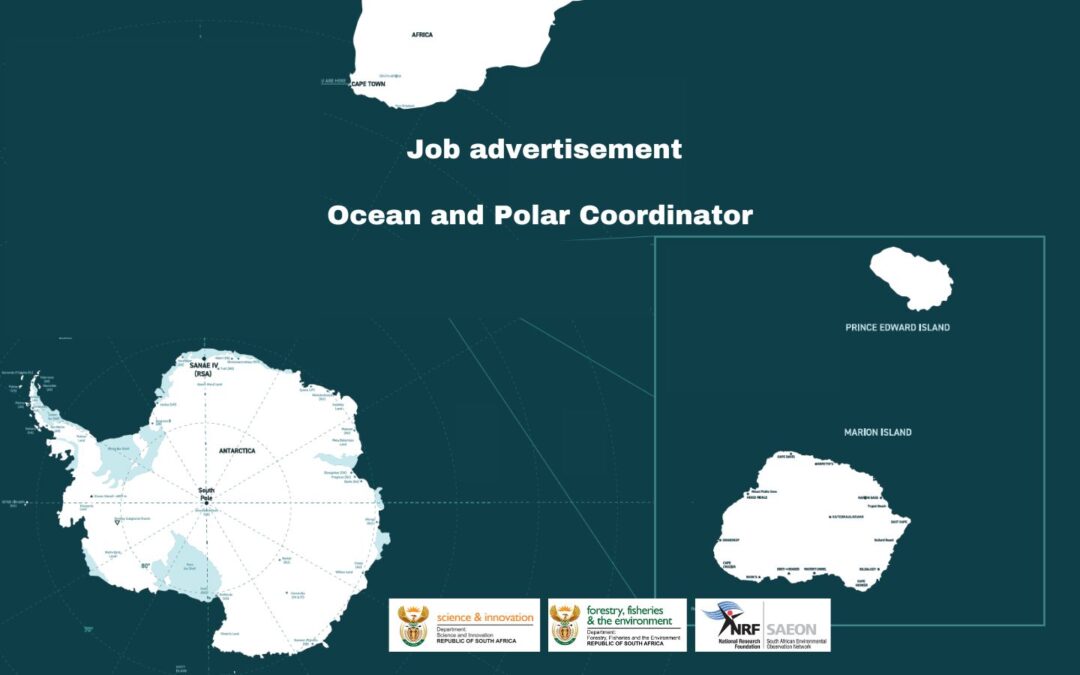
by Ria Olivier | May 24, 2023 | Announcement, Antarctica, Jobs, Marine Protected Area, Oceanography, Research, SA Agulhas II, SA Polar Research Infrastructure, SANAP, SAPolarRI, SAPRI, Science, Southern Ocean, sub-Antarctic
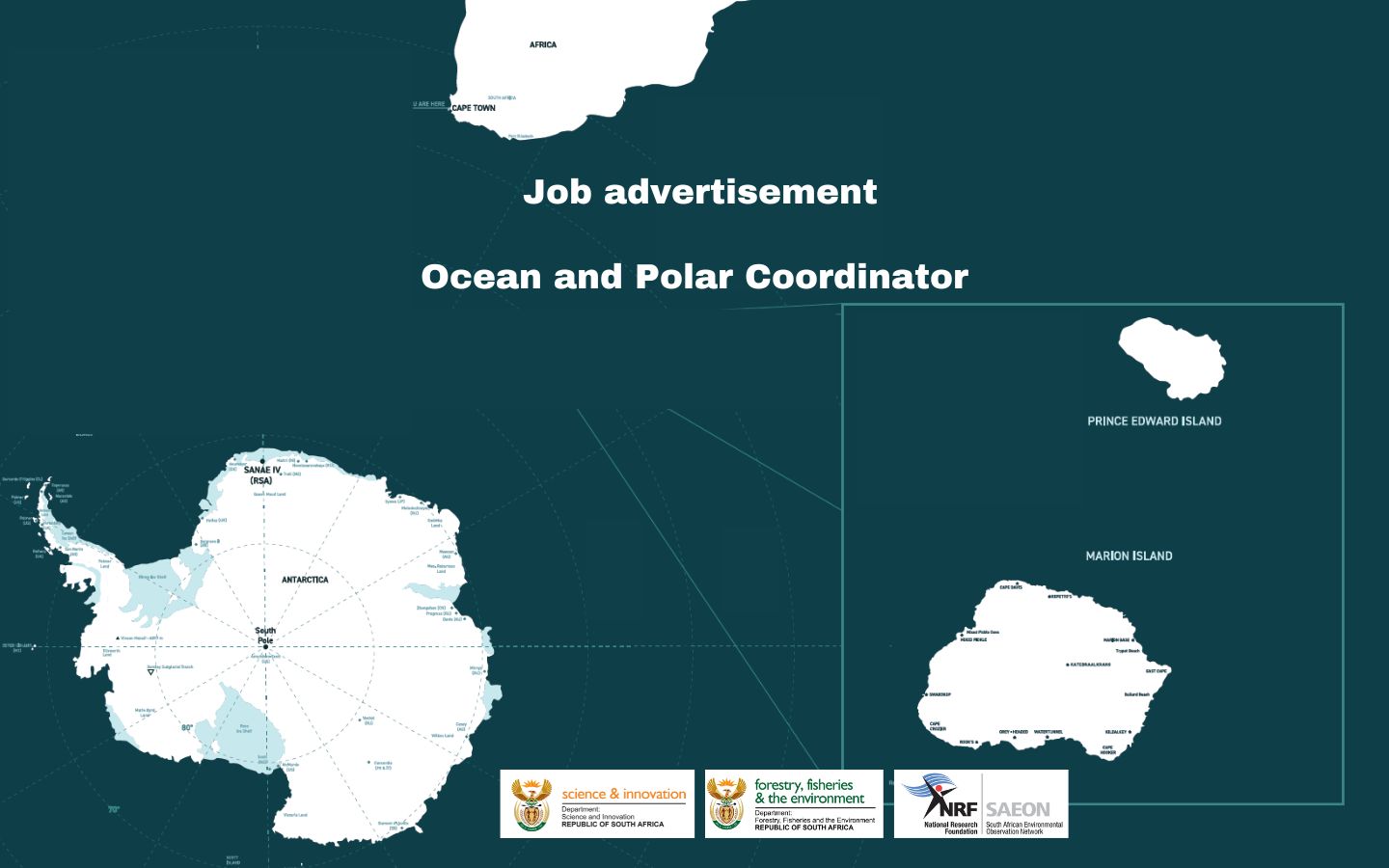
As per job advertisement:
The South African Environmental Observation Network (SAEON) is a research platform funded by the Department of Science and Innovation (DSI) and managed by the National Research Foundation (NRF).
SAEON is mandated to establish and manage long-term environmental observatories; maintain reliable long-term environmental data sets; promote access to data for research and/or informed decision making; and contribute to capacity building.
The SAEON Egagasini Node, based in Cape Town, Western Cape, requires the services of a:
Ocean and Polar Coordinator for day-to-day scientific, operational and logistical coordination.
Application Closing Date: 05 June 2023
Click on the link below:
Position: Ocean and Polar Coordinator
Read more about SAPRI – click on the link below!
South African Polar Research Infrastructure (SAPRI): Feedback and start of the Preparatory Phase
Anche Louw, South African Polar Research Infrastructure (SAPRI DPS Node), 24 May 2023
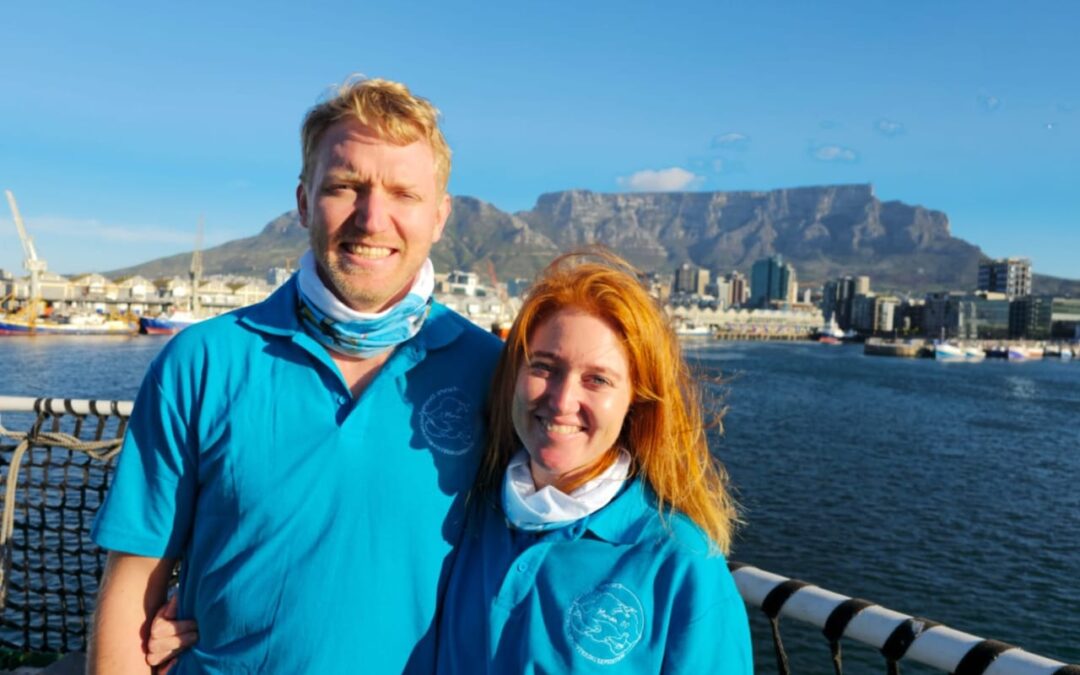
by Ria Olivier | May 10, 2023 | Current Event, Marion Island, News, Overwintering Team, Prince Edward Islands, Research, SANAP, SAPRI, Science, Southern Ocean, Stations, sub-Antarctic, Team member
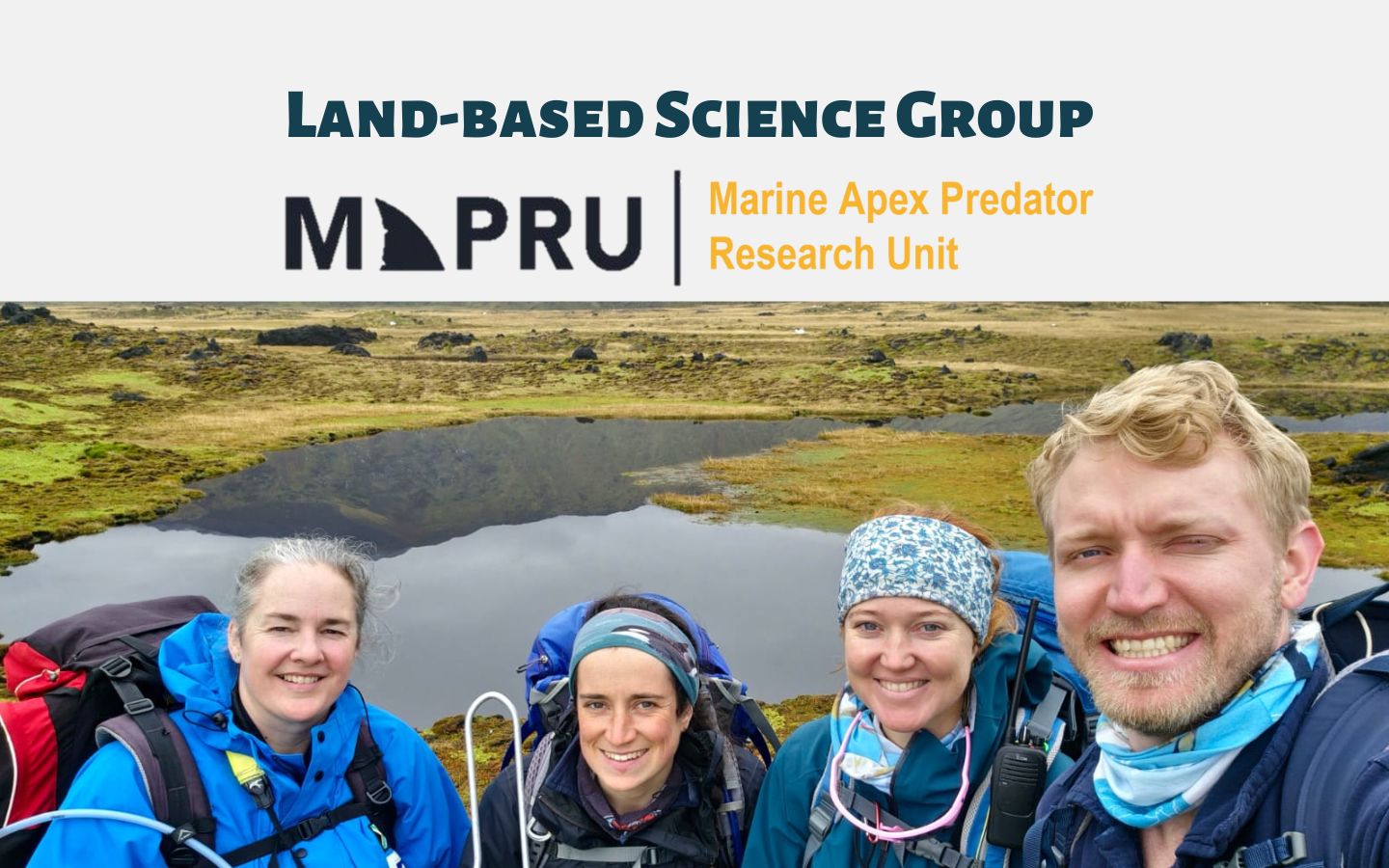
| TEAM | MAPRU | Affiliation |
| Project Name | Avian scavengers & seabirds |
| Principal Investigator | Dr Maëlle Connan | MAPRU, Nelson Mandela University |
| Co-Investigator | Prof Peter Ryan | Fitzpatrick Institute of African Ornithology, University of Cape Town |
| M79 Field Assistant | Lucy Smyth | MAPRU, Nelson Mandela University |
| M80 Field Assistant | Christopher Jones | MAPRU, Nelson Mandela University |
| M80 Field Assistant | Michelle Risi | MAPRU, Nelson Mandela University and the South African Polar Research Infrastructure (SAPRI) |
This team is studying seabirds at Marion Island and has two projects for the period 2021-2023:
1) Avian scavenger project focusing mostly on Black-faced Sheathbill, Kelp Gull and Brown Skua as well as some of their prey.
2) FitzPatrick long-term monitoring of Wandering Albatross, Grey-headed Albatross and Northern Giant Petrel.
More about the avian scavenger project:
This project started in 2021. It is tightly linked to the Mouse-Free Marion project.
Our aim is two fold: 1) we fill identified scientific gaps at the bird level that are crucial for best planning of the mouse eradication and development of appropriate mitigation measures. We are mostly focusing on three species of avian scavengers: Black-faced Sheathbill, Kelp Gull and Brown Skua and some of their prey. 2) we propose to use the three scavengers as indicators of recovery of the terrestrial ecosystem post-eradication by establishing baselines for the scavenger guild and their prey against which the impact of a successful mouse eradication can be measured in years to come.
More about the FitzPatrick long-term monitoring project:
The FitzPatrick long-term monitoring of Wandering and Grey-headed albatrosses and Northern Giant Petrel started in the early 1980s and has continued ever since. This individual-based monitoring of threatened species allows us to study the threats they face at sea (e.g. fisheries) and on land (e.g. mice) in order to act and decrease these threats and improve the conservation status. The species’ long-term monitoring is crucial as it allows us to decipher abnormal years from long-term trends.
More about the fieldwork:
The two projects above involve for example extensive counts of birds, lots of hiking, observations of bird behavior and record keeping of the activity of known individuals year after year.
What are your plans for this takeover:
During the takeover, we will be debriefing the year of Lucy Smyth who has worked on the island for our projects since April 2022. We will also train Chris and Michelle for the year ahead in all aspects, from field work to data entry and back-ups.
Follow MAPRU:




Follow PFIAO:




Text by Dr Maëlle Connan.
Images supplied by Christopher Jones.
Featured image: The MAPRU takeover 2023 team. L-R: Dr Maëlle Connan (PI), Lucy Smyth (M79 MAPRU Field Assistant), Michelle Risi (M80 MAPRU Field Assistant) and Christopher Jones (M80 MAPRU Field Assistant). Image taken on the Western side of the island.
Anche Louw, South African Polar Research Infrastructure (SAPRI DPS Node), 10 May 2023
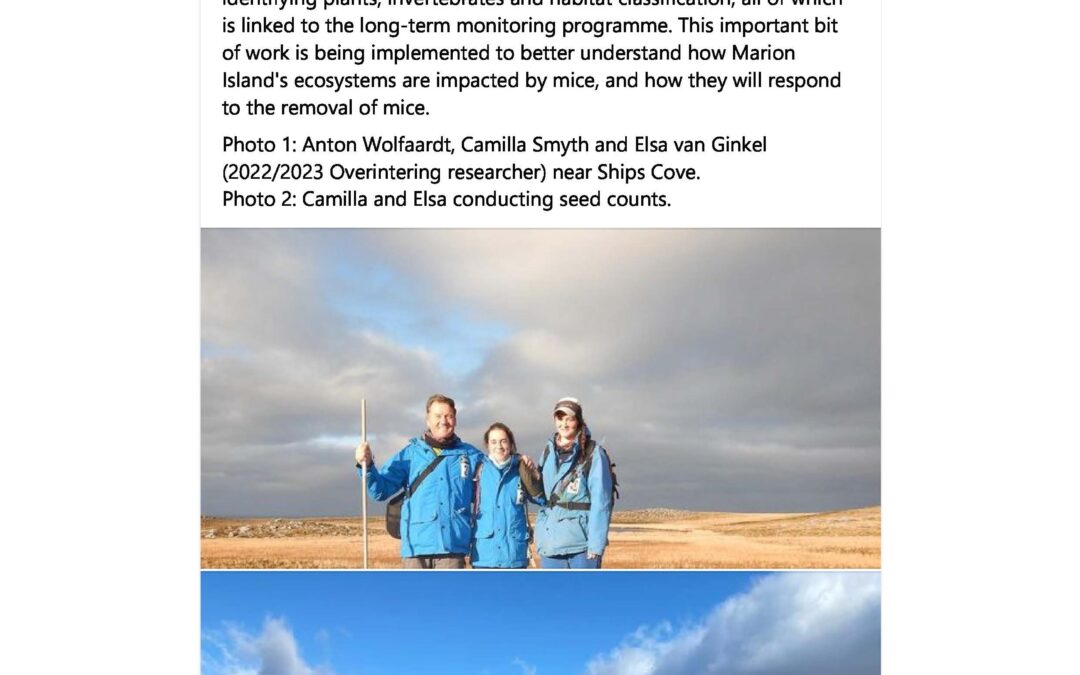
by Ria Olivier | May 5, 2023 | Invasion Biology, Marion Island, Mice Eradication, News, Prince Edward Islands, Research, SA Agulhas II, SANAP, Southern Ocean, Stations, sub-Antarctic, Team member
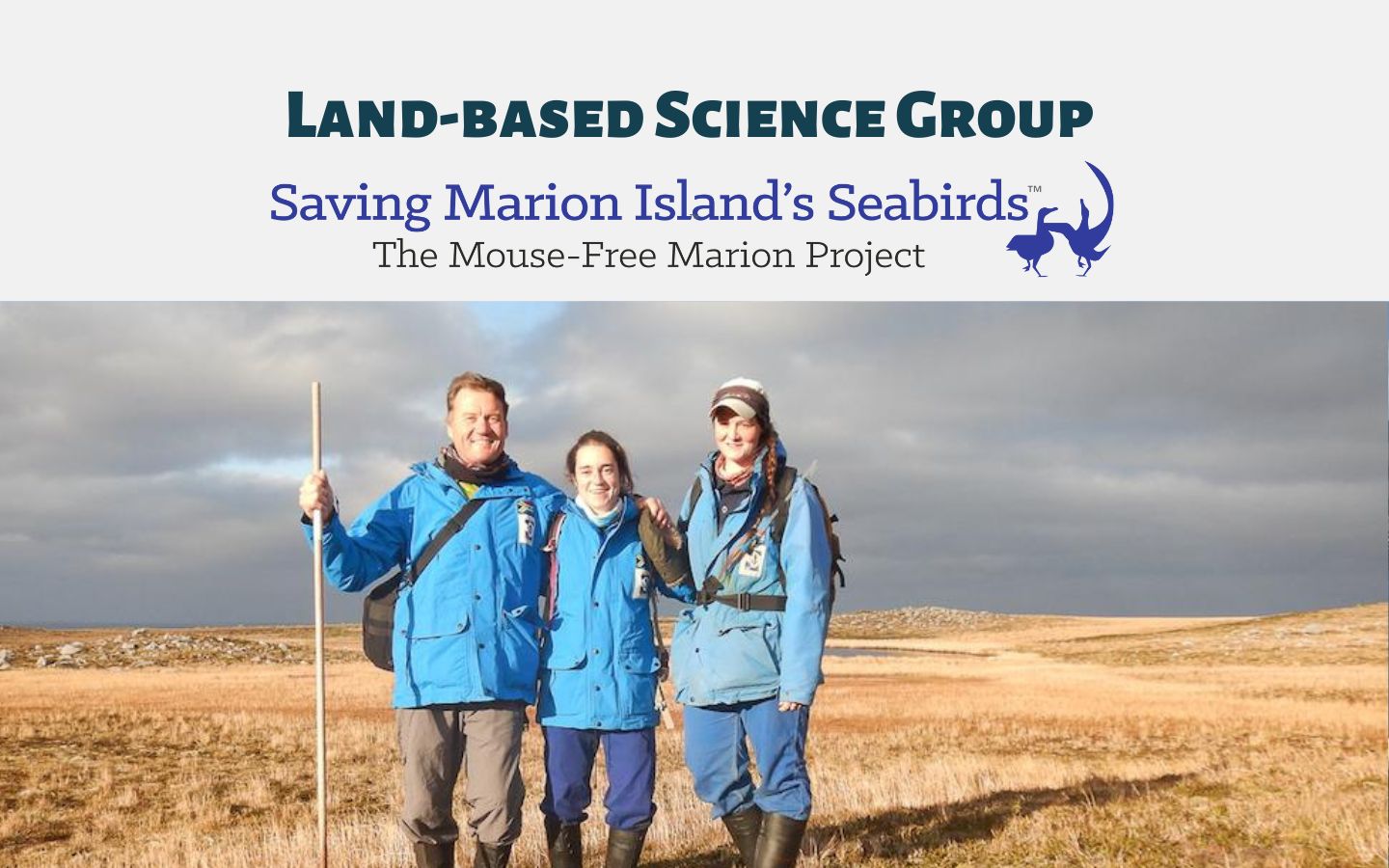
| TEAM | Mouse-Free Marion |
| Project Name | Longitudinal monitoring of terrestrial diversity to assess the effects of the planned mouse eradication on Marion Island, and bait and mouse trials to inform further planning for the Mouse-Free Marion Project |
| Project Manager | Dr Anton Wolfaardt |
| Collaborator | Prof. Michelle Greve |
| M79 Field Assistant | Elsa van Ginkel |
| M80 Field Assistant | Camilla Smyth |
The Mouse-Free Marion Project is a partnership between the Department of Forestry Fisheries and the Environment (DFFE) and BirdLife South Africa, working towards an operation to eradicate invasive mice from Marion Island.
The mice, which were introduced accidentally some 200 years ago, have caused great harm to the ecology of Marion Island. They feed on indigenous invertebrates, damage vegetation, and have more recently started eating seabird chicks. As a result, the mice are considered to be a major pest to the island. If they are not removed, the ecosystem of the island will continue to deteriorate, and they will likely cause most of the seabirds on the island to become locally extinct. These seabirds will be lost to the island forever.
In order to monitor how the island recovers after the mice have been removed, we are collecting data on aspects of the island that we expect to improve once the mice are gone. These include the vegetation and invertebrates. Colleagues working on other projects are collecting similar data on seabirds.
The reason why it is important to collect this data before the eradication operation is so that we can compare and monitor how the island changes (improves) as a result of the eradication operation – comparing the island’s vegetation and invertebrate features before and after the operation.
More about your plans for this takeover?
The project will make use of data that have already been collected over many years, primarily through the various long-term monitoring projects that have been undertaken at Marion Island over many years. The focus of our work currently is to fill some pre-eradication (baseline) data on vegetation and invertebrates. This particular work was initiated during the 2022/23 period, and will continue in 2023/24. The takeover period will be used to provide training and orientation to the new Marion80 overwintering team member (Camilla Smyth) and for the current Marion79 Mouse-Free Marion overwintering team member (Elsa van Ginkel) to hand over the field-work responsibilities to Camilla.
The work includes standard invertebrate and vegetation survey techniques to establish a baseline that can be used to monitor how these ecological parameters change following the eradication of invasive mice. These surveys will repeat and build on historical surveys that have been undertaken on the island previously.
We will also be undertaking further bait trials and weather monitoring to help inform the planning of the baiting operation.
Latest takeover update from the island (on 26 April 2023)
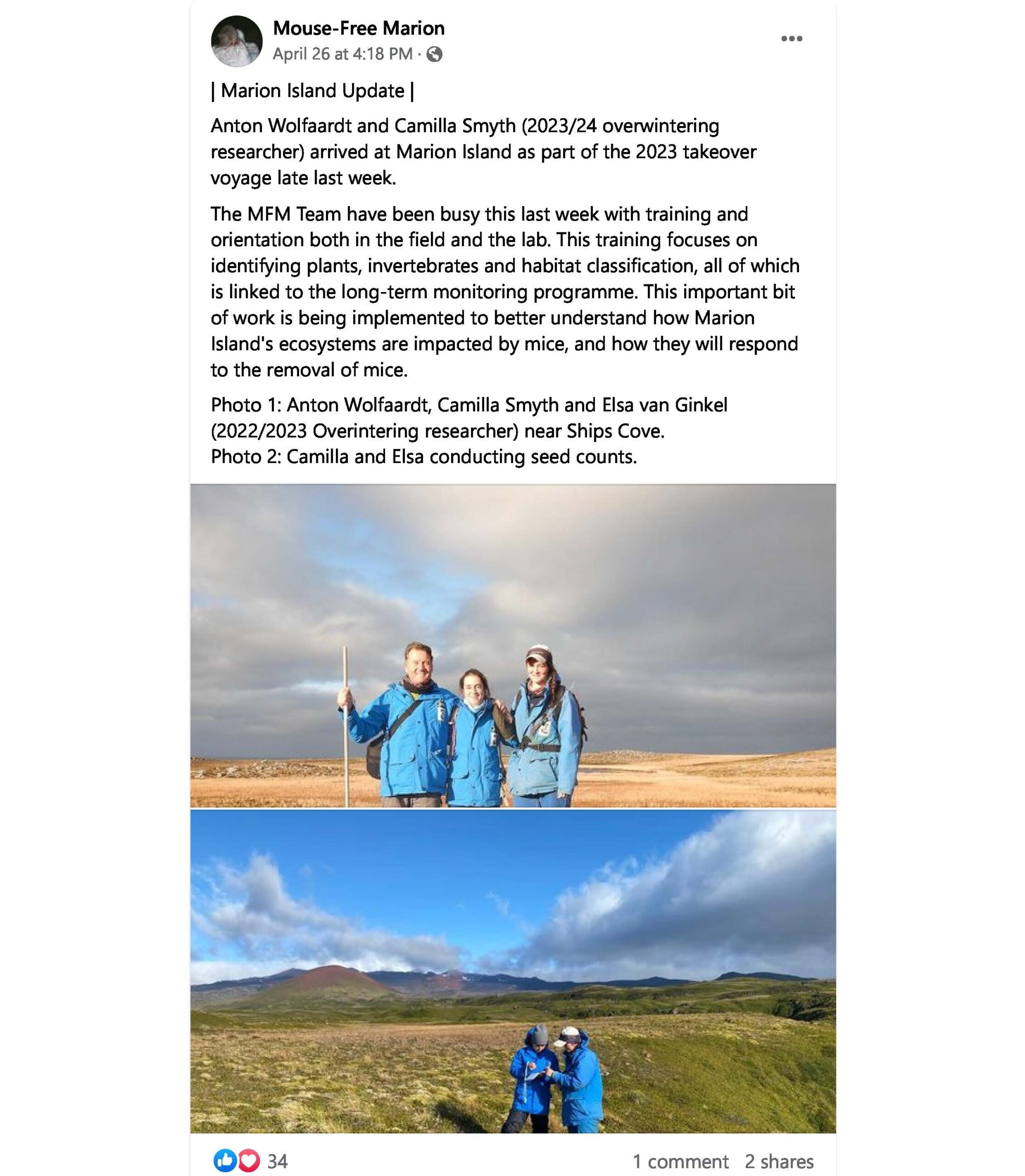

Check out the Mouse-Free Marion Website!
Follow MFM on social media for the latest updates:


Text and images supplied by Dr Anton Wolfaardt.
Featured image: The MFM takeover 2023 team. L-R: Dr Anton Wolfaardt (MFM Project Manager), Camilla Smyth (M80 MFM Field Assistant) and Elsa van Ginkel (M79 MFM Field Assistant). Photo taken on Marion Island, April 2023.
Anche Louw, South African Polar Research Infrastructure (SAPRI DPS Node), 05 May 2023
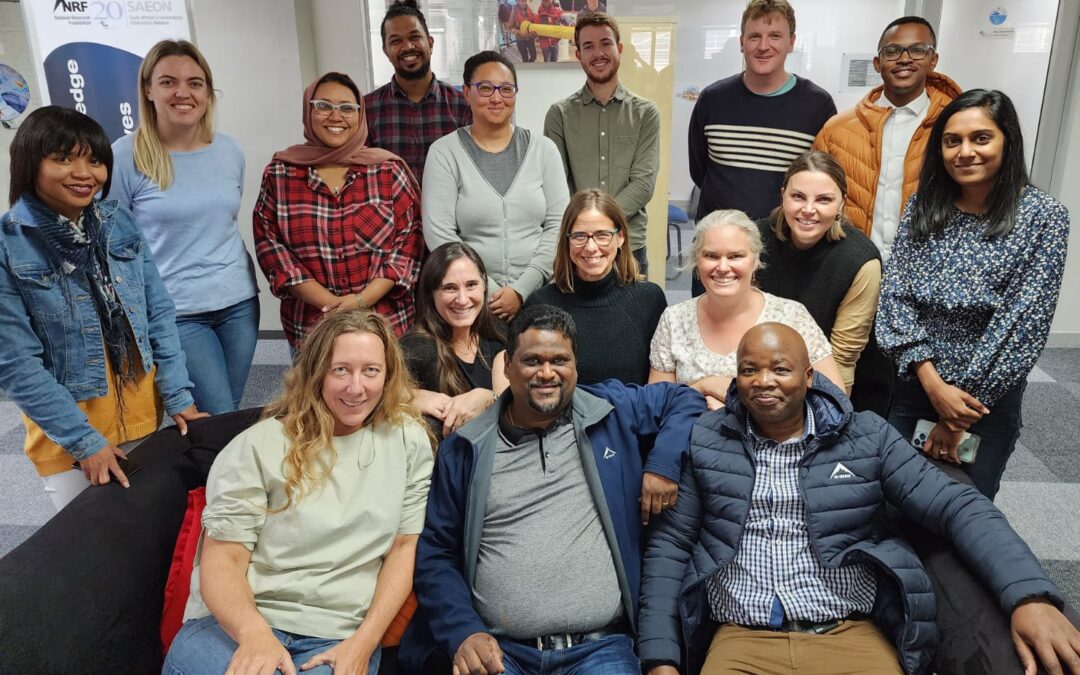
by Ria Olivier | May 4, 2023 | Announcement, Antarctica, Gough Island, Legacy, Marion Island, News, Prince Edward Islands, SA Agulhas II, SA Polar Research Infrastructure, SANAE IV, SANAP, SAPolarRI, SAPRI, Southern Ocean
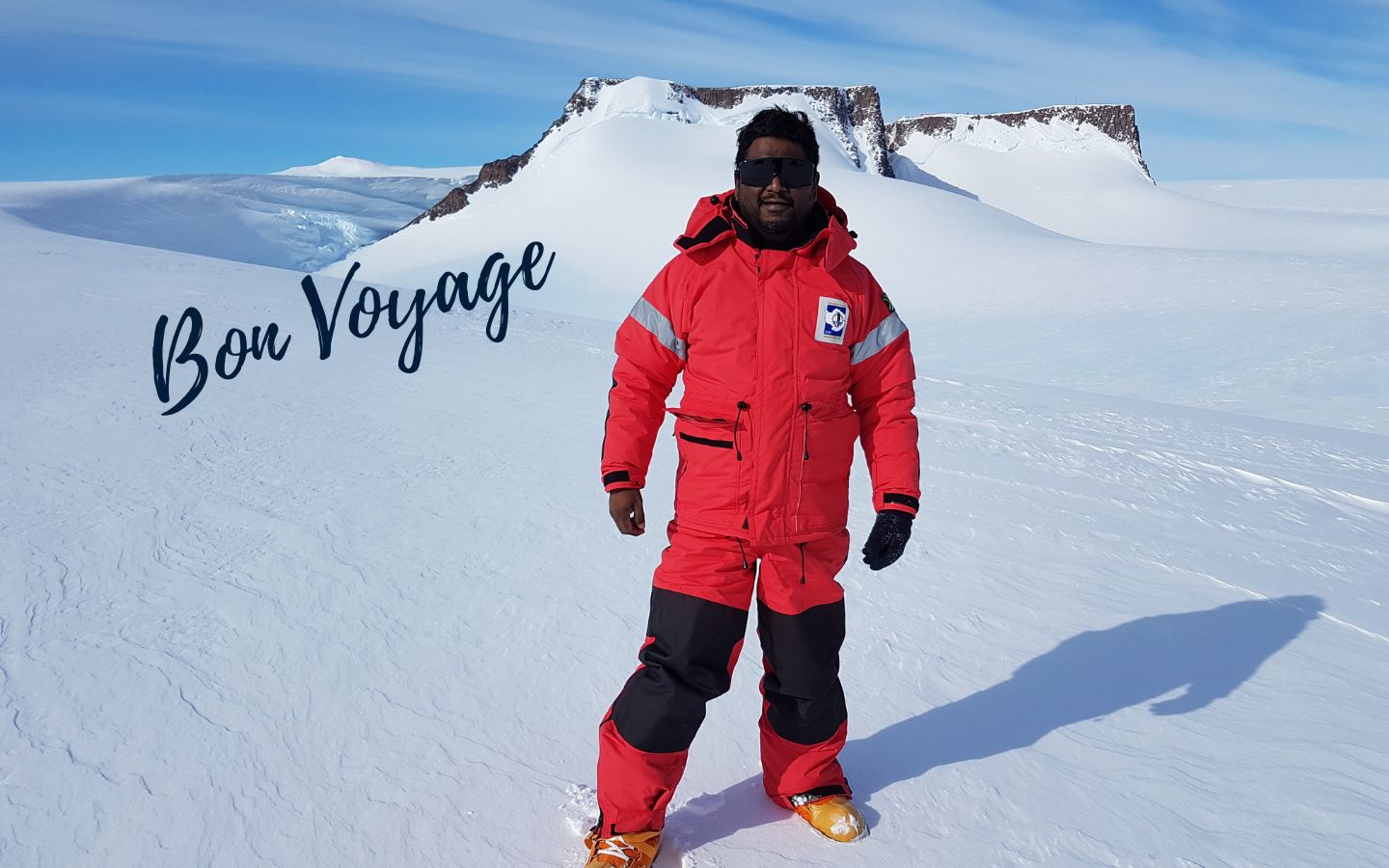
Dear Colleagues,
As I prepare to turn the page of a decade-long chapter of managing Operations and Infrastructure Support for Antarctica and Southern Ocean work and move on to new horizons, I wanted to take a moment to express my heartfelt gratitude to each and every one of you. Working together in enabling South Africa’s presence in this unique and challenging environment has been an unforgettable experience that has enriched my life in countless ways.
The extreme conditions and remoteness of the environment have demanded the best of me, and I am incredibly proud to have been part of it all. It sometimes felt like dealing with the logistical complexities of supporting Marine and Antarctic activities were the same as navigating the harsh ice conditions. We have faced and overcome numerous challenges as a team. Even though we may not have agreed on everything, the bonds we have built and the memories we have made will always hold a special place in my heart. I am truly grateful for the friendships, support, agreements and disagreements we have shared.
I am also deeply appreciative for being entrusted to manage South Africa’s presence in these pristine environments, and to have personally witnessed the beauty and wonder of Antarctica, Marion Island and Gough Island. The rough seas, breathtaking landscapes, unique wildlife, and understanding that there is so few which get this opportunity, have left an indelible mark on me, and I will forever cherish these memories.
As I move on to new endeavours away from the Ocean and Polar space, I will carry with me the valuable lessons I have learned especially when dealing with an unpredictable environment – the importance of adaptability, resilience, teamwork, and tenacity. The various curveballs and unexpected challenges have made me more resourceful in finding solutions. I am confident that the skills and experience gained will serve me well in my future pursuits.
I would like to extend my heartfelt thanks to each and every one of you for your unwavering support, dedication, and friendship during my tenure in the Antarctic and Marine space. I will always treasure the memories and the connections made, and I wish you all the very best in your ongoing work in Antarctica and the Southern Ocean or wherever your paths may lead you.
Thank you for being a part of this incredible journey, and please stay in touch.
With deepest gratitude,
Nish Devanunthan
Former Operations Coordinator: South African Polar Research Infrastructure (2022 to 2023)
Former Director – Operations and Engineering: South African National Antarctic Program (2013 to 2022)
Farewell gathering at SAEON Egagasini Node end of April 2023
Message from the SAPRI Team:
Even though Nish was with SAEON and SAPRI for only 9 months, he left a great legacy and managed to really ramp up the operations within SAPRI. He has a fountain of knowledge on Antarctica and Islands, DFFE, the S.A. Agulhas II and supply chain management, yet he still has a great sense of humour and commitment to action in the face of bureaucracy.
Nish, fair winds and following seas, we have the watch (although might ring you every now and then!).
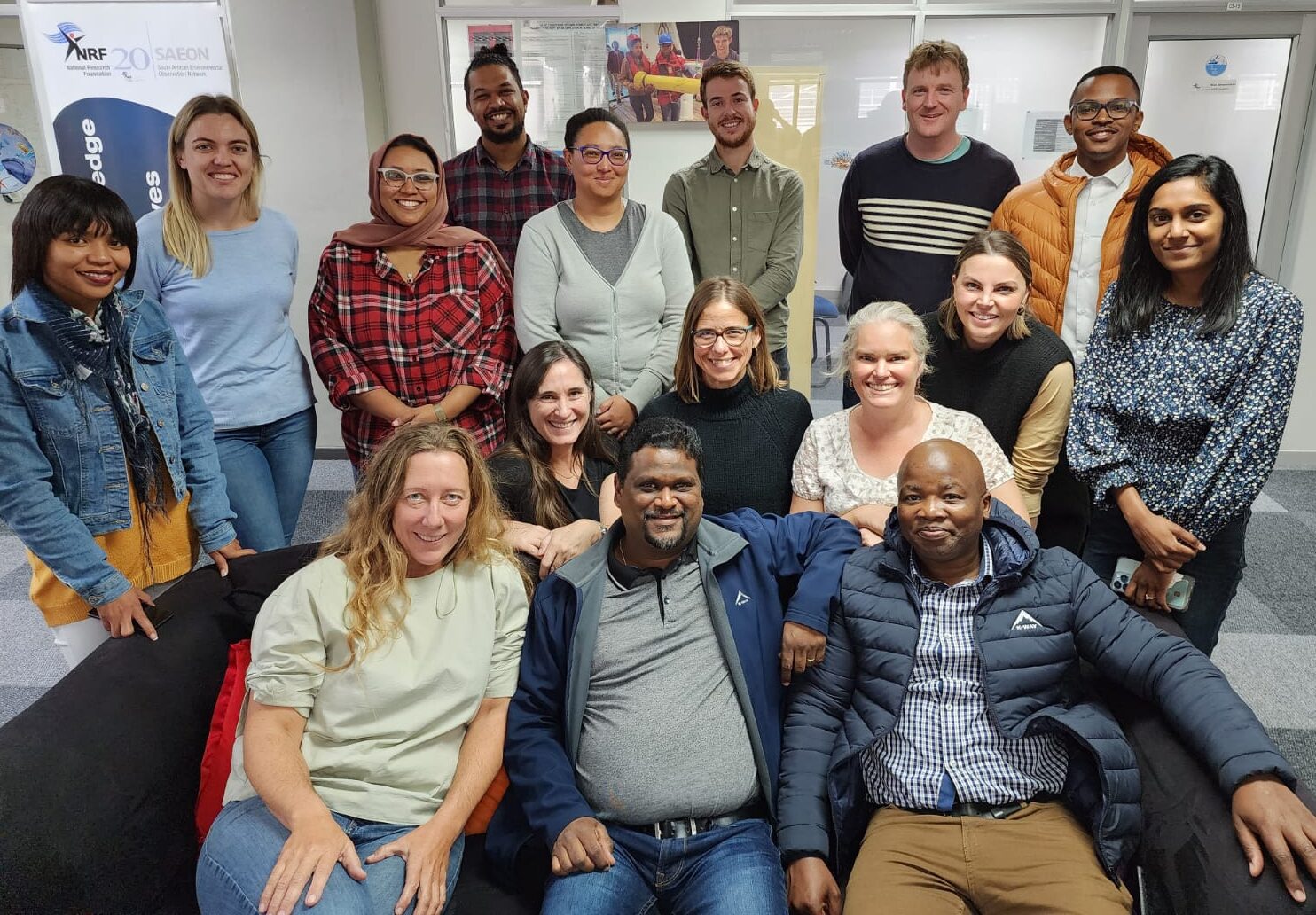
SAEON Egagasini Node and SAPRI Team (L-R) Back: Simoné Louw (Node Administrator), Laura Braby (Postdoctoral Research Fellow), Saffiya Seddick (Seamap Coordinator), Juan-Jacques Forgus (Technician), Nicole du Plessis (Science Officer), Arno Botha (PhD Student), Zach Smith (Systems Developer), Nkululeko Memela (Operational Ocean Modeller); (middle) Lara Atkinson (Offshore Marine Scientist), Jennifer Veitch (Numerical Ocean Modeller), Anne Treasure (SAPRI DPS Node Manager), Anche Louw (SAPRI Digital Marketing and Communications Manager), Daneeja Mawren (Postdoctoral Research Fellow); (front) Juliet Hermes (SAEON Egagasini Node Manager and SAPRI Manager), Nish Devanunthan (Former SAPRI Operations Coordinator) and Thomas Mtontsi (Science Engagement Officer).
Feature Image: Nish Devanunthan at the South African National Antarctic Expedition Station, SANAE IV.
Anche Louw, South African Polar Research Infrastructure (SAPRI DPS Node), 04 May 2023

 Rabia is a registered Natural Scientist with the South African Council for Natural Scientific Professions (SACNASP) in the field of Environmental Sciences. Rabia holds a Masters degree in Plant Science with a focus on understanding plant invasion potential and climate change responses in the sub-Antarctic region. Rabia has experience in the environmental consulting industry, having worked as a freshwater ecologist and advising clients in terms of relevant environmental legislation and policies as part of the Environmental Impact Assessment (EIA) process. This has given her a range of capabilities that suit her new role as Research Coordinator for the Data, Products and Society Integrated Facility. Her knowledge and background in sub-Antarctic and polar research places her well within the focus of SAPRI. Her work experience in the private sector has equipped her with leadership and stakeholder engagement skills and experience that are valuable as a research coordinator, and brings a fresh outlook to how science (and research infrastructure) is accessed, communicated and how data is managed – key functions of DPS.
Rabia is a registered Natural Scientist with the South African Council for Natural Scientific Professions (SACNASP) in the field of Environmental Sciences. Rabia holds a Masters degree in Plant Science with a focus on understanding plant invasion potential and climate change responses in the sub-Antarctic region. Rabia has experience in the environmental consulting industry, having worked as a freshwater ecologist and advising clients in terms of relevant environmental legislation and policies as part of the Environmental Impact Assessment (EIA) process. This has given her a range of capabilities that suit her new role as Research Coordinator for the Data, Products and Society Integrated Facility. Her knowledge and background in sub-Antarctic and polar research places her well within the focus of SAPRI. Her work experience in the private sector has equipped her with leadership and stakeholder engagement skills and experience that are valuable as a research coordinator, and brings a fresh outlook to how science (and research infrastructure) is accessed, communicated and how data is managed – key functions of DPS. Abuyiselwe, friendly known as Abu, hails from the small town of Komani in the Eastern Cape. His passion in science led him to pursue postgraduate studies. Abu has been focused on periglacial aeolian process research for almost a decade now as he pursues his Ph.D. in Geography. Abu has been part of two overwintering teams on the sub-Antarctic Marion Island, which has given him a vast experience in sub-Antarctic and polar research. Abu is excited to take on his new role within SAPRI and SAEON, where he can continue to build his career and play a part in South African polar research reaching its potential and expanding to the rest of Africa. His work within the Sub-Antarctic Landscape and Climate interactions (SALCi) group has equipped Abu with skills in leadership, data management, proposal writing and efficiency, and of course the love for the sub- Antarctic and the Southern Ocean.
Abuyiselwe, friendly known as Abu, hails from the small town of Komani in the Eastern Cape. His passion in science led him to pursue postgraduate studies. Abu has been focused on periglacial aeolian process research for almost a decade now as he pursues his Ph.D. in Geography. Abu has been part of two overwintering teams on the sub-Antarctic Marion Island, which has given him a vast experience in sub-Antarctic and polar research. Abu is excited to take on his new role within SAPRI and SAEON, where he can continue to build his career and play a part in South African polar research reaching its potential and expanding to the rest of Africa. His work within the Sub-Antarctic Landscape and Climate interactions (SALCi) group has equipped Abu with skills in leadership, data management, proposal writing and efficiency, and of course the love for the sub- Antarctic and the Southern Ocean. Precious holds a Ph.D. in Ocean and Atmospheric Science with a focus on climate variability. Precious brings a remarkable depth of knowledge and expertise to the team. She has a strong academic background in physical oceanography, atmospheric science, and environmental science. This interdisciplinary training enables her to explore the intricate interplay between the ocean and the atmosphere, shedding light on the dynamic processes that shape our global climate. As a Research Coordinator, Precious assumes a pivotal role in supporting SAPRI’s long-term ocean initiatives. She actively contributes to the development and maintenance of data infrastructure, ensuring smooth research processes for the integrated facility stakeholders. Her meticulous attention to detail and analytical skills contribute to the collection and analysis of valuable data that will help the polar research community better understand our oceans. Outside of her research pursuits, Precious enjoys engaging in community outreach programs and sharing her knowledge and passion for the environment with others. Through these efforts, she strives to inspire the next generation of scientists and foster a sense of environmental stewardship.
Precious holds a Ph.D. in Ocean and Atmospheric Science with a focus on climate variability. Precious brings a remarkable depth of knowledge and expertise to the team. She has a strong academic background in physical oceanography, atmospheric science, and environmental science. This interdisciplinary training enables her to explore the intricate interplay between the ocean and the atmosphere, shedding light on the dynamic processes that shape our global climate. As a Research Coordinator, Precious assumes a pivotal role in supporting SAPRI’s long-term ocean initiatives. She actively contributes to the development and maintenance of data infrastructure, ensuring smooth research processes for the integrated facility stakeholders. Her meticulous attention to detail and analytical skills contribute to the collection and analysis of valuable data that will help the polar research community better understand our oceans. Outside of her research pursuits, Precious enjoys engaging in community outreach programs and sharing her knowledge and passion for the environment with others. Through these efforts, she strives to inspire the next generation of scientists and foster a sense of environmental stewardship. Riesna is the Research Coordinator for the SAPRI Polar Lab. She has a background in polar oceanography and a passion for all things Antarctica. She has helped to develop the field protocols employed by South African researchers on sea ice research and contributed to the knowledge and available data of the polar regions through her Ph.D. research on the biogeochemistry of sea ice in the Antarctic marginal ice zone (MIZ). Riesna believes that science should be accessible and inclusive and intends to use her position to showcase polar research amongst researchers and non-researchers alike. She is a firm believer that collaboration across institutions and disciplines is crucial for the future of polar research and that accessibility, inclusivity and visibility are vital in order to grow this field and encourage the next generation of polar researchers.
Riesna is the Research Coordinator for the SAPRI Polar Lab. She has a background in polar oceanography and a passion for all things Antarctica. She has helped to develop the field protocols employed by South African researchers on sea ice research and contributed to the knowledge and available data of the polar regions through her Ph.D. research on the biogeochemistry of sea ice in the Antarctic marginal ice zone (MIZ). Riesna believes that science should be accessible and inclusive and intends to use her position to showcase polar research amongst researchers and non-researchers alike. She is a firm believer that collaboration across institutions and disciplines is crucial for the future of polar research and that accessibility, inclusivity and visibility are vital in order to grow this field and encourage the next generation of polar researchers.